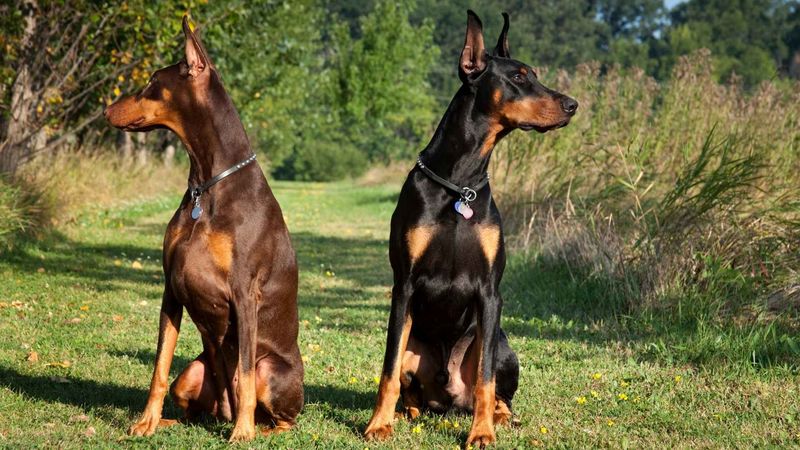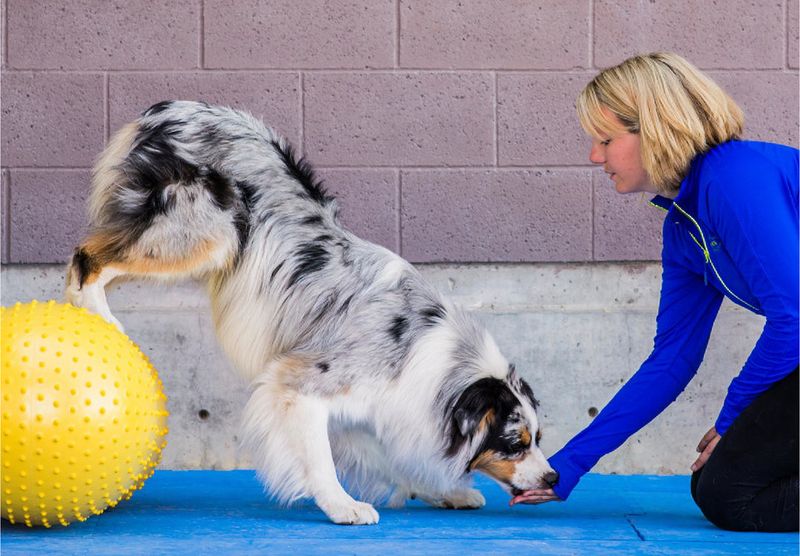This is not just a size thing. It’s a lifestyle thing.
Are you dreaming of a couch-sized cuddle monster who doubles as a security system?
Or a pocket-sized partner-in-crime who fits in your tote and rules the world with 5-pound confidence?
Big dogs bring the drama — the zoomies, the drool, the bear hugs.
Small dogs bring sass, smarts, and the ability to ride shotgun in style.
Both come with perks. Both come with chaos.
So which pup really wins the size showdown?
Let’s weigh the pros, the cons, and the slobbery kisses — no fluff, just facts.
Big Dogs: Loyal Protectors

Big dogs are often seen as loyal protectors. With their imposing size, they serve as effective deterrents against intruders, providing peace of mind for their owners.
In addition to protection, they offer a sense of companionship that is hard to match. Known for their loyalty, these dogs often form deep bonds with their families, making them ideal partners for those seeking emotional connection.
However, their size requires a significant amount of space, both indoors and outdoors, which can be a limiting factor for many households.
Small Dogs: Apartment-Friendly Companions

Small dogs excel in apartment living. Their compact size makes them perfect for urban settings where space is at a premium.
These dogs are not just about size; their adaptability to small living areas makes them convenient companions for city dwellers. Additionally, their grooming and feeding demands are often less, making them financially viable pets for many.
Yet, their petite stature doesn’t always translate to low energy levels. Many small breeds are vibrant and require regular exercise and mental stimulation to keep them happy and healthy.
Big Dogs: Exercise Motivation

For those needing a nudge towards fitness, big dogs can be perfect motivators. Their energy levels and need for regular exercise can encourage owners to lead a more active lifestyle.
Many large breeds enjoy activities like running, hiking, or long walks, providing ample opportunity for owners to engage in physical activities.
This mutual need for movement fosters a strong bond and keeps both human and canine companions healthy. However, be prepared for the physical stamina needed to keep up with their pace and energy.
Small Dogs: Easy Travel Buddies

Traveling with dogs can be challenging, but small dogs make it a breeze. Their size allows them to fit comfortably in carriers approved for most transportation methods, making them ideal travel companions.
Their manageable size also means they can stay close during flights or road trips, reducing anxiety for both the pet and owner.
However, while their size is advantageous, it’s essential to consider their temperament, as some small breeds can get anxious in unfamiliar environments.
Big Dogs: Family-Friendly Playmates

Big dogs often become beloved family playmates. Breeds like Golden Retrievers are known for their gentle demeanor and patience around children.
Their size provides a stable and sturdy presence, allowing kids to play without fear of injury to the dog. They offer endless fun, from fetching to playful wrestling, becoming integral to family memories.
Despite their amicable nature, supervision is always recommended to ensure safe interactions. Their large stature might overwhelm very young children if not monitored closely.
Small Dogs: Low Maintenance Grooming

Owning a small dog can mean less grooming hassle. Many small breeds, like the French Bulldog, require minimal grooming compared to their larger counterparts.
Their coats are often shorter, reducing shedding and the frequency of visits to the groomers. This not only saves time but also money, as grooming services can be costly.
However, it’s crucial to maintain a regular grooming schedule to keep their coats healthy and shiny. While grooming is less frequent, it should not be neglected entirely.
Big Dogs: Space Requirements

The grandeur of big dogs comes with their need for space. Breeds like Saint Bernards thrive in environments where they can move freely and explore.
This requirement can be a blessing for homeowners with large backyards, offering a convenient way for dogs to exercise.
Yet, this necessity can be a constraint for those living in tighter spaces. Prospective owners should weigh their ability to provide adequate room for their big dogs to roam and play comfortably.
Small Dogs: Barking Alerts

Small dogs are known for their keen alertness, often becoming the first to notice strangers or changes in their environment.
This trait makes them excellent watchdogs despite their size. Their sharp barks can alert homeowners to potential intruders or unusual activity around their residence.
However, this vigilance can sometimes lead to excessive barking, which can be a challenge for those living in close-knit communities or apartments where noise is a concern.
Big Dogs: Cost of Care

Owning a big dog can be a significant financial commitment. The cost of food, healthcare, and other necessities tends to be higher compared to smaller breeds.
These dogs often require more of everything, from food portions to medication doses, leading to increased expenses. Veterinary visits and treatments can also be more costly due to their size.
Potential owners should budget accordingly and ensure they are prepared for the long-term financial responsibilities that accompany the joy of having a large furry friend.
Small Dogs: Longer Lifespan

A notable advantage of small dogs is their longevity. Breeds like the Shih Tzu often enjoy longer lifespans, offering years of companionship and joy.
This extended lifespan allows for many cherished memories and a prolonged bond between pet and owner.
Nevertheless, prospective owners should be prepared for the commitment of caring for a pet over a potentially long period, which can include age-related health issues, requiring patience and dedication.

